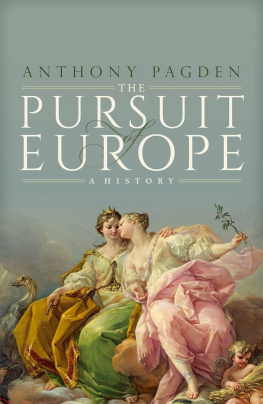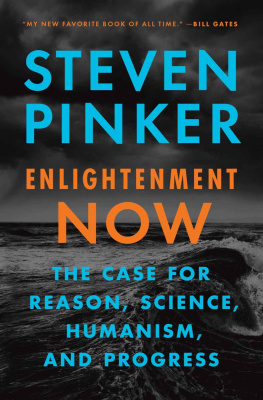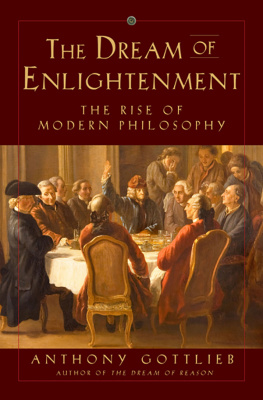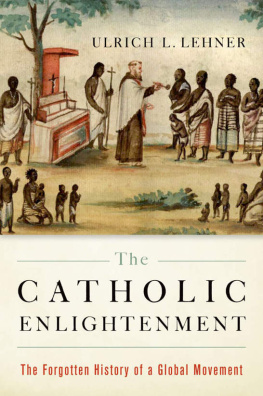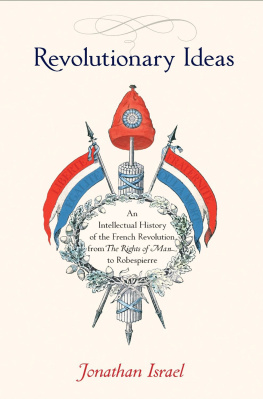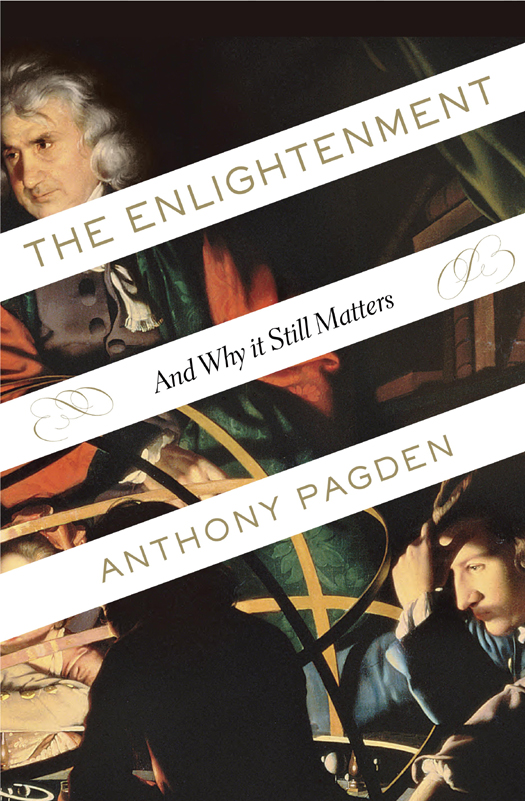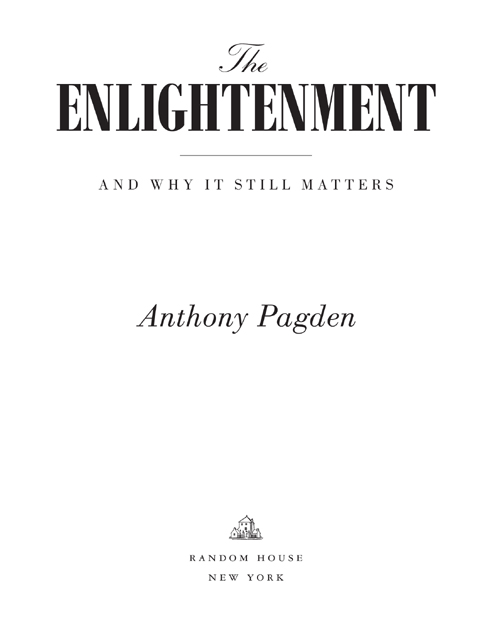Anthony Pagden - The Enlightenment: And Why It Still Matters
Here you can read online Anthony Pagden - The Enlightenment: And Why It Still Matters full text of the book (entire story) in english for free. Download pdf and epub, get meaning, cover and reviews about this ebook. year: 2013, publisher: Random House, genre: Religion. Description of the work, (preface) as well as reviews are available. Best literature library LitArk.com created for fans of good reading and offers a wide selection of genres:
Romance novel
Science fiction
Adventure
Detective
Science
History
Home and family
Prose
Art
Politics
Computer
Non-fiction
Religion
Business
Children
Humor
Choose a favorite category and find really read worthwhile books. Enjoy immersion in the world of imagination, feel the emotions of the characters or learn something new for yourself, make an fascinating discovery.

- Book:The Enlightenment: And Why It Still Matters
- Author:
- Publisher:Random House
- Genre:
- Year:2013
- Rating:5 / 5
- Favourites:Add to favourites
- Your mark:
The Enlightenment: And Why It Still Matters: summary, description and annotation
We offer to read an annotation, description, summary or preface (depends on what the author of the book "The Enlightenment: And Why It Still Matters" wrote himself). If you haven't found the necessary information about the book — write in the comments, we will try to find it.
Liberty and equality. Human rights. Freedom of thought and expression. Belief in reason and progress. The value of scientific inquiry. These are just some of the ideas that were conceived and developed during the Enlightenment, and which changed forever the intellectual landscape of the Western world. Spanning hundreds of years of history, Anthony Pagden traces the origins of this seminal movement, showing how Enlightenment concepts directly influenced modern culture, making possible a secular, tolerant, and, above all, cosmopolitan world.
Everyone can agree on its impact. But in the end, just what was Enlightenment? A cohesive philosophical project? A discrete time period in the life of the mind when the superstitions of the past were overthrown and reason and equality came to the fore? Or an open-ended intellectual process, a way of looking at the world and the human condition, that continued long after the eighteenth century ended? To address these questions, Pagden introduces us to some of the unforgettable characters who defined the Enlightenment, including David Hume, the Scottish skeptic who advanced the idea of a universal science of man; Franois-Marie Arouet, better known to the world as Voltaire, the acerbic novelist and social critic who challenged the authority of the Catholic Church; and Immanuel Kant, the reclusive German philosopher for whom the triumph of a cosmopolitan world represented the final stage in mankinds evolution. Comprehensive in his analysis of this heterogeneous group of scholars and their lasting impact on the world, Pagden argues that Enlightenment ideas go beyond the empire of reason to involve the full recognition of the emotional ties that bind all human beings together. The human science developed by these eminent thinkers led to a universalizing vision of humanity, a bid to dissolve the barriers past generations had attempted to erect between the different cultures of the world.
A clear and compelling explanation of the philosophical underpinnings of the modern world, The Enlightenment is a scintillating portrait of a period, a critical moment in history, and a revolution in thought that continues to this day.
Praise for The Enlightenment
For those who recognize the names Hegel, Hume, Rousseau, Kant, Voltaire, and Diderot but are unfamiliar with their thought, [Anthony] Padgen provides a fantastic introduction, explaining the driving philosophies of the period and placing their proponents in context. . . . Padgens belief that the Enlightenment made it possible for us to think . . . beyond the narrow worlds into which we are born is clearly and cogently presented.Publishers Weekly (starred review)
The Enlightenment really does still matter, and with a combination of gripping storytelling about colorful characters and lucid explanation of profound ideas, Anthony Pagden shows why.Steven Pinker, author of The Better Angels of Our Nature and The Blank Slate
Reading Anthony Pagdens The Enlightenment: And Why It Still Matters is an enlightenment in itself. Everyone interested in where the West came from should read this book.Ian Morris, author of Why the West RulesFor Now
Anthony Pagden: author's other books
Who wrote The Enlightenment: And Why It Still Matters? Find out the surname, the name of the author of the book and a list of all author's works by series.

